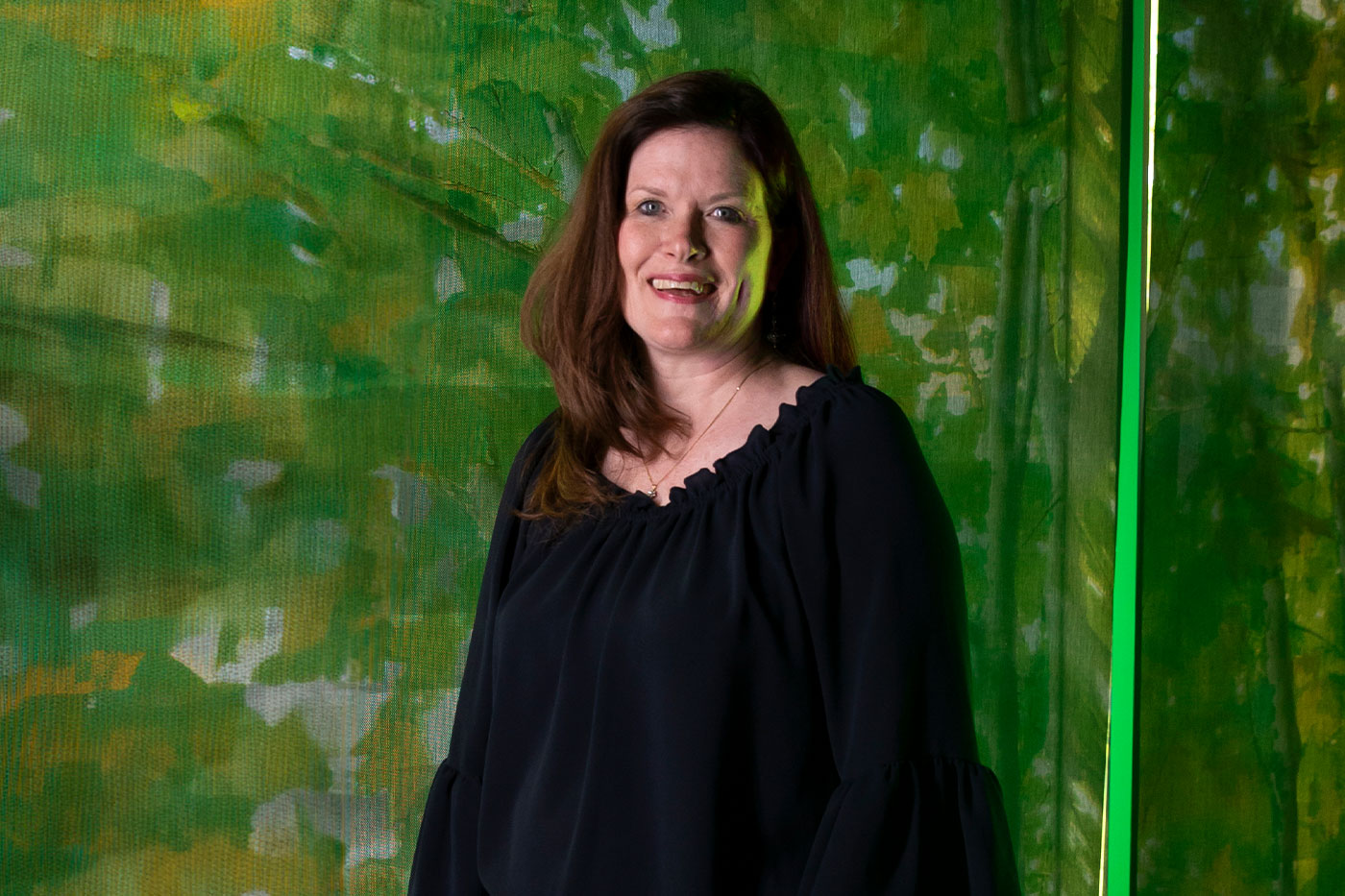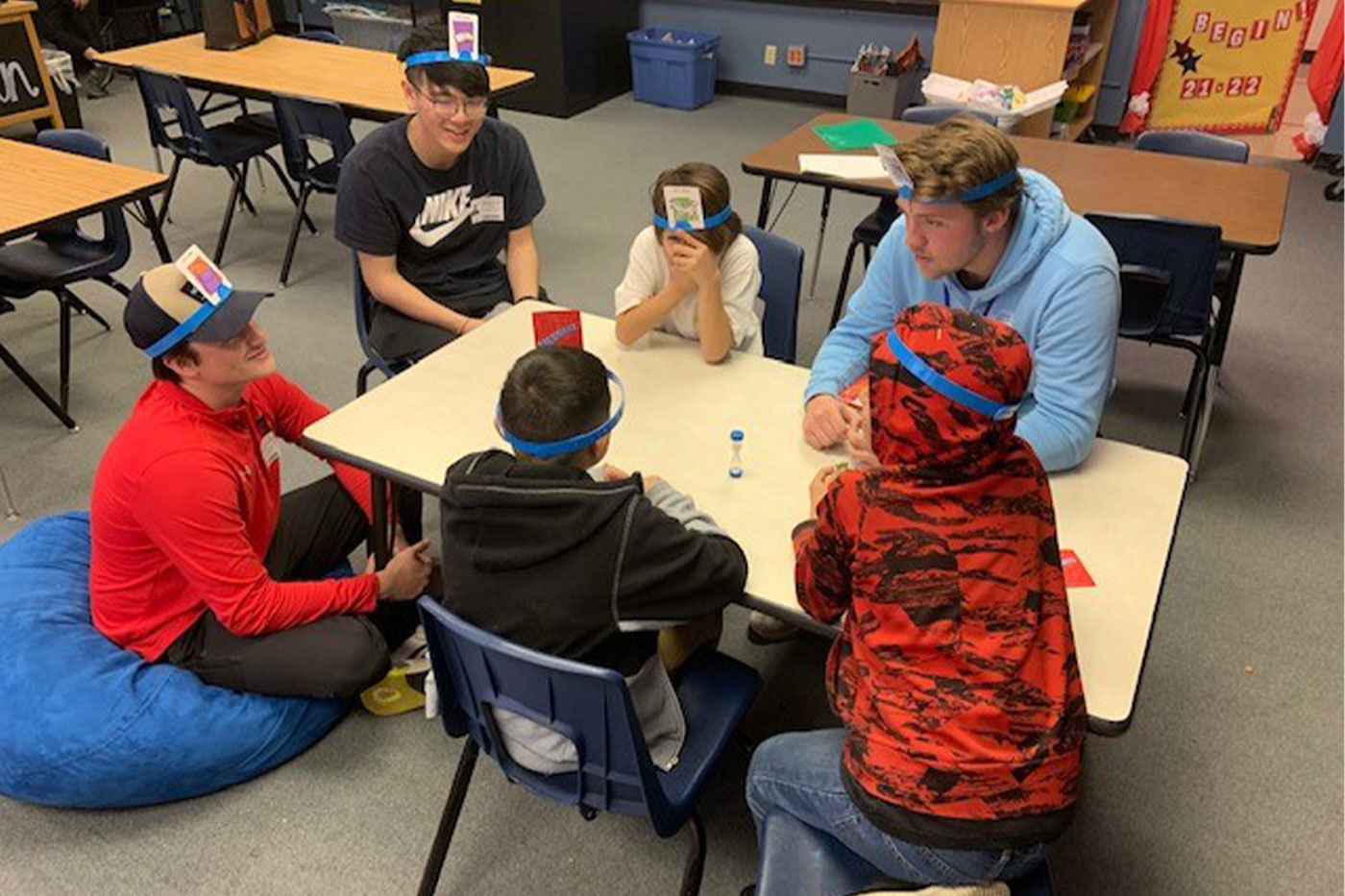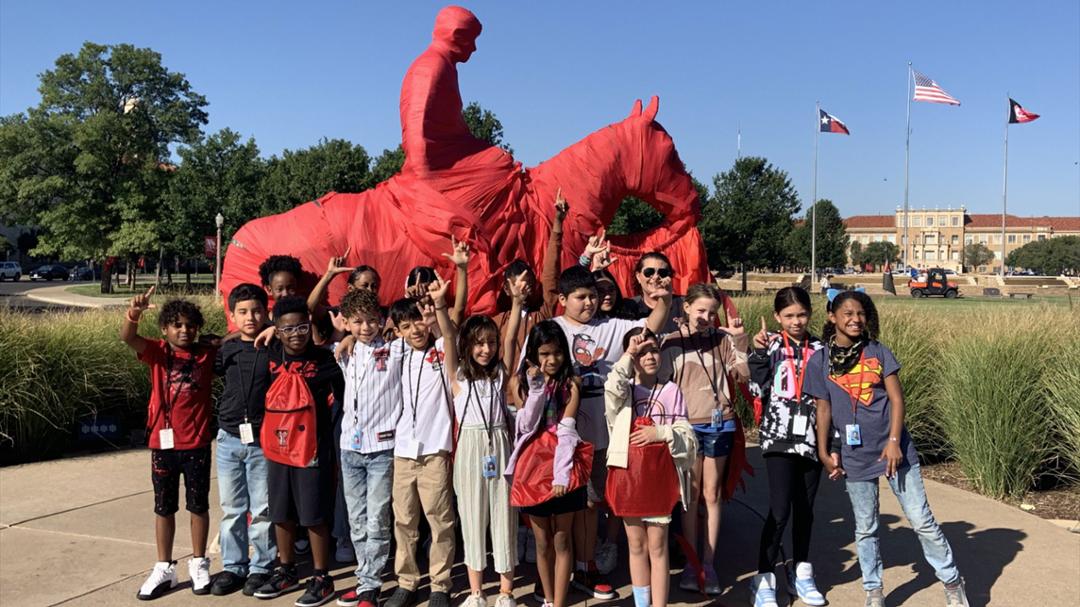Honors College students bring a slice of Texas Tech to Bayless Elementary with weekly visits, closing a gap only a few miles wide that can appear worlds away.
Having advised the Honors College’s Bayless Elementary Mentoring Program since its inception a decade ago, Director of Scholarships & Engagement Stacy Poteet has witnessed countless examples of the program’s mutual benefits.
“I always tell students that you think you’re going to go into Bayless and change a child’s life, and you are, but you’re going to realize that your life has also been impacted,” Poteet said.
What began as an effort by former Dean Michael San Francisco to pass down his longtime volunteering at Bayless Elementary to Texas Tech University students has blossomed into a transformative, enduring experience students flock to. Since the 2014-2015 school year, Honors College students have traveled the 10-minute jaunt south to 58th Street at least once each week to spend time uplifting children who could use the encouragement.
Bayless is a Title I school receiving federal funding under the Elementary and Secondary Education Act, as 91% of students qualify for free or reduced lunches and many hail from socioeconomically disadvantaged backgrounds. When San Francisco was named dean in 2014, his mind quickly gravitated toward the school as a manner by which to get Honors College students involved in their surrounding community.
Dean Jill Hernandez has also been instrumental to the program’s longevity, Poteet said, through her involvement and support.
“It’s been great to see it grow from just a very small group of mentors to 140 after our new mentor orientation,” Poteet added.

Word of mouth is a major reason for the growth.
Ghufran Murtuza, president of the Bayless Board, heard about it through his sister who was one year above him. Her influence, especially with her time on the board, and the prospect of impacting others stood out to the fourth-year microbiology and general studies major, who joined his first year and increased his involvement over time.
According to Poteet, mentors past and present gush about their experiences to students coming after them, which encourages the next cycle of applicants. The number of interested students has skyrocketed to the point where Poteet and board members interview candidates, to ensure students are up to the task of benefitting Bayless mentees.
Potential mentors aren’t required to have childhoods similar to children at Bayless, but a heart to serve and a willing ear are vital.
Those standards have brought in eager mentors who don’t limit their involvement on campus to the minimum one visit per week.
Bayless Principal Brandi McKinney, who’s been at the school since the program’s launch, sees how excited mentors are to meet with their students and the extra acts they do in bringing birthday gifts or Starbucks drinks. She’s also spoken with mentors about the conversations between the college and elementary students, learning how mentors aspire to inspire more than a desire to earn a degree.
“They're super kind to me all the time,” McKinney said. “But when I see them in the hallways, that tells me they've got great character because they're trying to build that in our kiddos, which is awesome, because we need that, and we need help instilling that.”
Murtuza has worked with three mentees. The first was a fifth-grade student who’s since promoted to middle school, another moved after the fall semester, and the last student has been paired with Murtuza for the last two years.
Forming a connection and trust can take time, especially with mentees who face challenging home lives. But seeing children excited to come to school, spend time with their friends and enjoy each day inspires Murtuza to persist in being a positive role model.
He’s built a solid relationship with his current mentee, discovering an interest in computers and computer science that could be further pursued at Texas Tech.
“I was really grateful to help him through that process to see what his interests and passions are,” Murtuza said. “A lot of the kids don’t even think about college at that early age or may not have exposure to that because their parents or others in their family may have never gone to college.”
In September, Bayless students visited Texas Tech for the first time in four years, touring the Robert H. Ewalt Student Recreation Center, viewing presentations and demonstrations from faculty and receiving a glimpse of campus life.
The students enjoyed seeing the freedom associated with choosing their classes and what to do with their time, Murtuza said.
Their visit to campus came after a year of planning by the student officers on the Bayless Board, one of numerous examples of board members executing methods to serve their elementary students.
The culture of investment in the program often means mentors staying involved through the end of their time at Texas Tech.
That’s been the case for fourth-year student Sarah Auer, who joined in her second year as she missed her time coaching cheerleading and gymnastics in high school.
Auer was fortunate to be paired with a third-grade student, which makes 2024-2025 a bittersweet year. The finance major will graduate with her bachelor’s degree in the spring, and her mentee is set to move onto middle school after finishing the fifth grade.
“We’ve definitely had a special relationship; she’s very much like a little sister to me,” said Auer. “We’ve seen each other at least once a week for the past three years, and so I feel like we’re close now and she’s really comfortable with me. It’s honestly sweet.”
The youngest in her family, Auer has enjoyed taking on the brand-new role of older sibling.
Her mentee took a few months to warm up to her, but by the end of their first semester together, Auer saw a sense of comfort and that her mentee looked forward to the weekly visits.
Since then, the two have bonded over a mutual interest in gymnastics. Auer taught her mentee a few tumbling moves and helped start a cheer club at Bayless to keep her mentee involved.
As the Zeta Tau Alpha sorority’s philanthropy chair, she killed two birds with one stone by encouraging her sisters to lead the club with her being so busy elsewhere and creating a pathway for her mentee to stay happily engaged.
Auer’s commitment led to Poteet and Kim Martin, the mentor coordinator at Bayless, to approach her about joining the Bayless Board. The transition, which occurred this spring, was a natural progression for a mentor already involved in organizing charitable drives for the program and activities beyond her weekly obligations.
She’s enjoyed voicing her input and being a part of the behind-the-scenes board discussions, such as planning the yearly haunted house event, in addition to her role as secretary. That sentiment is precisely what Murtuza hopes to engender as president by providing support and encouraging the communication and execution of ideas.
“In the past two years, we’ve had a lot of new initiatives that I’ve been able to help push for, with the amazing help of Mrs. Poteet and everyone on the board who has been so receptive,” said Murtuza. “What I want to leave is a legacy of not being afraid of change and being willing to go the extra step, the extra mile, to provide a wonderful experience for the kids at Bayless.”
With the board being a registered student organization that receives funding through the Student Government Association, the group can buy school supplies on the behalf of teachers, host events throughout the year, support after-school programs and help mentees pursue their interests.

McKinney characterized the growth of the Honors College’s presence as deeper than just weekly meetings.
The impacts of the mentoring program aren’t limited to those inside the Bayless walls, either.
Honors College students are exposed to the stories of some children growing up with incarcerated parents or without much positive reinforcement, Poteet said, and the mentors don’t take their responsibilities and presences lightly.
Poteet referenced mentor Sam Davis’ experience of telling his mentee she could be a doctor if she put as much effort into a science fair project one year into the rest of her work.
“Sam said her eyes and her whole facial expression lit up, and he told me, ‘I don’t think anyone had ever told her what she was capable of,’” Poteet recalled. “For him, that was so impactful because he’d had that in his family.
“He’d had people that believed in him and poured into him, who encouraged him and said, ‘You’re going to be able to do anything you set your mind to.’”
Passing on those words of encouragement can have a lifelong impact, and spending quality time week after week to develop relationships between mentor and mentee helps both parties. Mentors enter the program studying a wide variety of majors and exit with enhanced abilities to communicate and empathize.
Poteet credits the advertising of the Mentoring Program by Honors College faculty and staff, as well as additional support from the Lubbock Independent School District, as factors for the program’s longevity.
Dean Hernandez’s commitment through regular meetings and discussions about how to track mentees’ academic paths beyond Bayless and ensure they have assistance through middle and high school has also been beneficial.
However, McKinney and Murtuza point to the work of Poteet and mentor coordinator Kim Martin as the largest catalyst. The program wouldn’t be the same without those two and their collaboration the past 10 years, McKinney said.
“We’ve just had a longevity of being the same people who get to sustain it, watch it grow, get excited and make it better and better every year,” McKinney continued. “That brings more people on from the Honors College who want to be a part of it, and it makes us more excited.”
Murtuza also mentioned the abundance of people who join the program, see the effect it has on students, and are dedicated to continually encourage their mentees. Those interactions between mentor and mentee leave people forever changed, he attested, as people who want to give back to their communities and make others smile.
By attracting kindhearted people determined to promote positivity through their actions year after year, the program has sustained itself.
Poteet’s adage that mentors are impacted by their mentees as much as the other way around has stuck with Auer, who said visiting Bayless weekly is a highlight for her and her peers.
“Everyone has built such a meaningful relationship with their student,” she said. “It gives you something of a purpose in addition to just being a student. Everyone loves it.”

